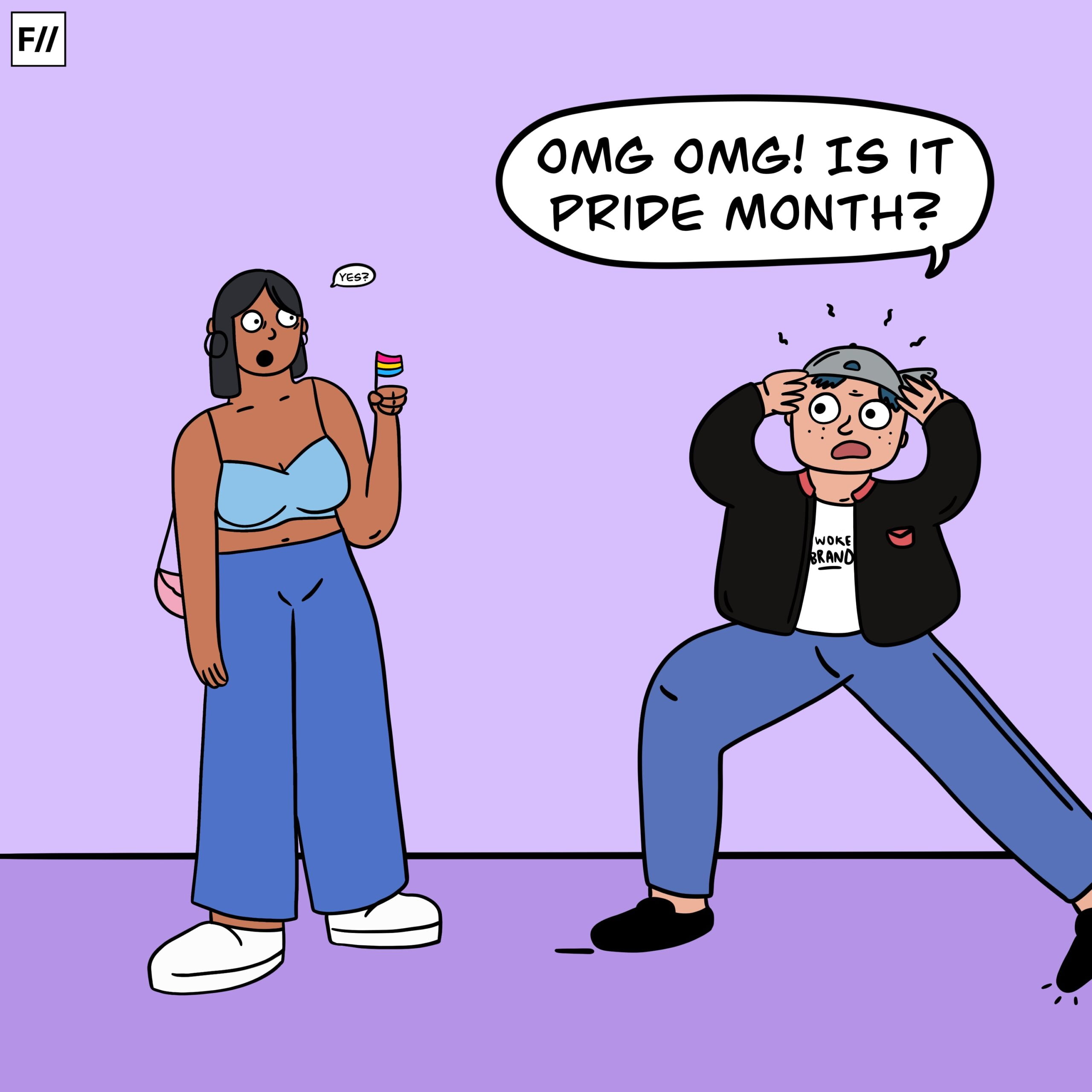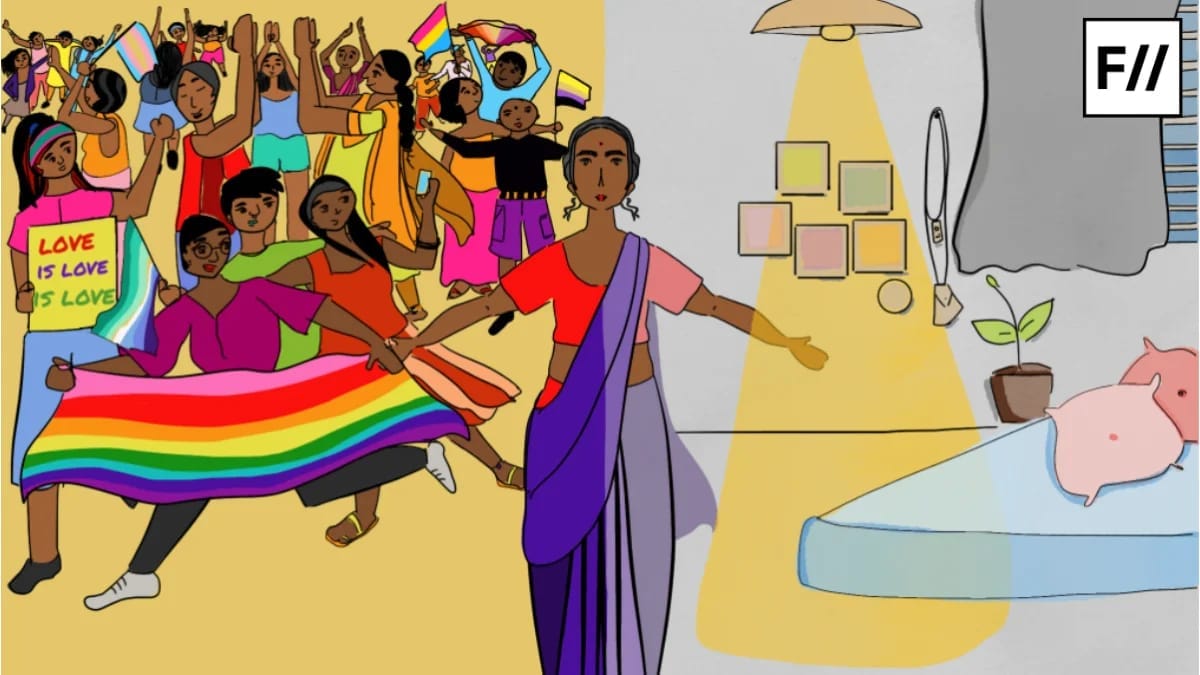Queer joy is beautiful, I have come to realise. As a year of college draws to an end while I write this essay, and as June itself rolls into its last few days, I find myself reflecting on all the friends I have made up till this moment. I am possibly in love with them all, and it is only in interacting with them that I truly feel as if I were part of a community larger than myself.
With the end of an entire year at my college, I can look back on those heady, impulsive few months wherein I refused to end the war I waged on my body and psyche with a kind of nostalgia. If not for my friends- ones close enough that I could walk over to them and far enough that social media remained our sole way of contact- who’s to say how I’d have turned up?
My friends have offered me perhaps a more effective and loving community than the larger queer circuit has. Though I have several bones to pick with the latter, I figured it would be a good thing to acknowledge the former’s role in my life.
From the offset- I am not a well-behaved queer subject. Only a couple of days ago, I declined to attend a Pride Parade being held in my city, in favour of preparing for an exam I had the next day. People around me have had starkly different attitudes to queerness.
On the one hand, my friends, so accepting, open and loving; on the other, my former schoolmates, who would resort to physically assaulting any ‘effeminate,’ boy they would come across. Yet my alienation from the community, I have come to realise, isn’t just ‘me,’ problem. Several gay men and lesbian women I have talked to have professed similar feelings of detachment.
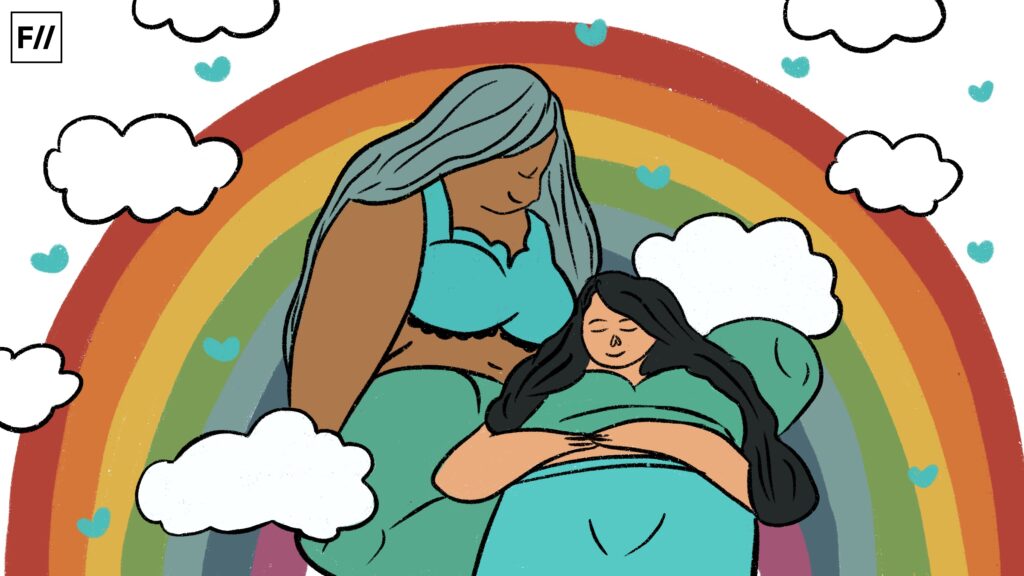
Perhaps it is crucial to stand back and examine the queer movement in India, and to figure out where exactly it has faltered that a considerable number of members in the community have begun to feel disillusioned with it. In particular, I posit that the contradictions within the movement that arises from its failure to incorporate radical strands of feminism within itself and be receptive to feminist critiques of its stances have possibly created a rift within it.
Only yesterday, I opened social media to be sent a rather distasteful meme by my friend. This isn’t rare- humour online is very often a hit-or-miss with me. What was more disturbing was how mainstream poor ‘queer humour,’- making a mimicry of jokes rooted in misogyny by transposing the same misogynistic attitudes onto partners in a homosexual relationship- had become.
When discussing gay relationships with a straight acquaintance, they would go on to admit that they were unable to conceptualise the same as existing outside of the strict delineation of sexual roles heterosexual sex includes. In its exoticising of the power differential between partners, the jokes represented a disturbing trend within the community- and amongst gay men in particular- to emulate the very same patriarchal fetishising of subordination that the heterosexual conception of sex hinges upon.
Variations of such jokes remain pertinent in online spaces- and offline too, unsurprisingly- but it is on dating apps, and the ways in which queer people navigate relationships that the vast horror of the situation is realised. It is impossible for me- and for several others- to navigate such sites without the horror of invasive questions pertaining to our ‘preference,’ invariably rearing its head.
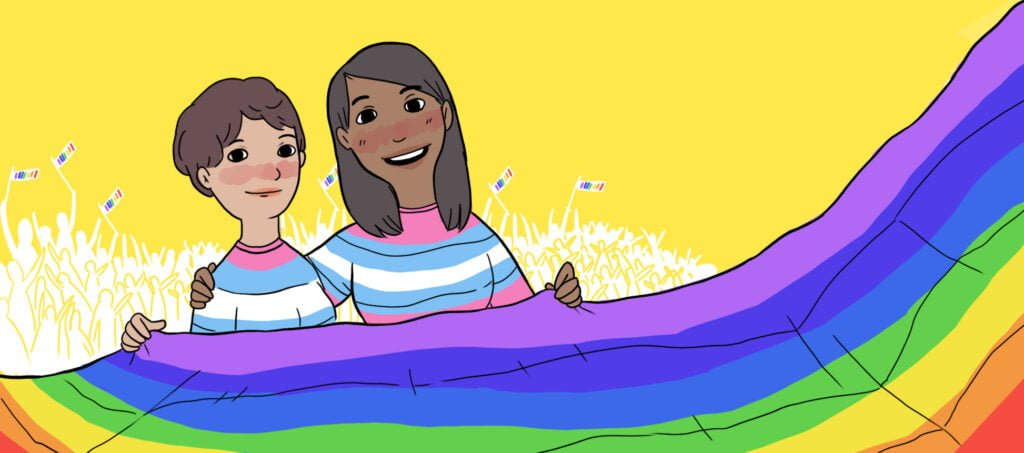
Against such a backdrop, I often end up viewing myself as existing extant to the perverse reenactment of patriarchal dynamics that the community partakes in, and, by extension, according to queer acquaintances, as existing extant to the need for affection and community at all.
So deeply has our conception of queer love become infested with this problem that we are unable to fathom love existing outside of it! Herein lies a primary source of friction I experience at the intersection of the community and my understanding of feminism as a revolutionary project; yet this isn’t the only one.
As a child, I would often be subjected to bullying owing to the considerably higher pitch of my voice. I would be taunted endlessly- both by my peers and teachers alike- as to why I was so ‘soft-spoken.’ I would go on to become an incredibly self-conscious, anxiety-riddled adolescent; often I would blatantly mimic the body language of my peers in an effort to pass off as ‘normal.‘
Online culture has begun to invariably permeate the offline sphere. The neoliberal state repackages and sells discourse- particularly feminist and queer discourse- to consumers to turn a profit. Worse, consumers of pop culture no longer attempt to hide the ways in which they objectify the subjects of their fascination.
A dear friend, for example, only recently spent thousands of Rupees on buying themed merchandise of her favourite artist, even though she would mostly end up reselling her haul eventually. Only recently I chanced upon news regarding Bebe Rexha being attacked by a man attending her concert, who allegedly wanted her to click pictures with the phone he launched at the artist. The entitled behaviour of men with respect to women artists only adds a chilling dimension to the assault.
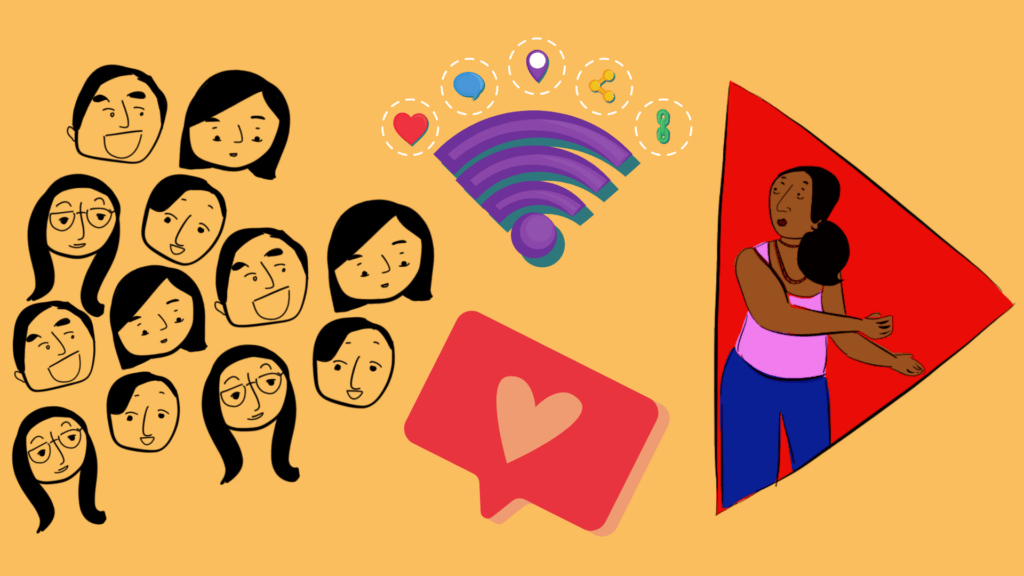
The online sphere acts as one of the most fertile grounds for casual misogyny to go unnoticed. While on the one hand, it enables queer people to organise and reach out for support (crowdfunding, house hunting and so on), on the other, it acts effectively as a medium for men to harness their organisation with other men to hound, harass and assault women.
As a child, I would often be subjected to bullying owing to the considerably higher pitch of my voice. I would be taunted endlessly- both by my peers and teachers alike- as to why I was so ‘soft-spoken.’ I would go on to become an incredibly self-conscious, anxiety-riddled adolescent; often I would blatantly mimic the body language of my peers in an effort to pass off as ‘normal.‘
The freedom to conduct oneself as one pleases forms (for me, at least) an essential cornerstone of liberation. Graduating school and finding people amidst whom I could speak as I wanted to, and carry myself as I wished to, was certainly a welcome break.
In treating women in their lives as social capital, misogynistic queer men reveal the brutal, dark underbelly of ‘queer solidarity,‘ within the country- one that refuses to acknowledge women’s rights and that consistently speaks over and polices queer women (it is no surprise that lesbian women tend to seek spaces that solely consist of other queer women, and also no surprise that men still continue to encroach these spaces.)
Yet with the same freedom came inhibitions- as I interacted with queer people, I discovered that a caricaturised understanding of what constitutes ‘gay slang,’ plagues social media sites, wherein people- especially queer men- find it more and more acceptable to refer to women through slurs most people would have acknowledged were derogatory only some time ago.
And since the delineation between online and offline spheres is becoming increasingly blurred, it is no surprise that misogynistic slurs are now casually thrown around without second thought by gay men in real, day-to-day conversations.
This language is but only a part of an overarching tendency of gay men in particular to objectify women. In treating women in their lives as social capital, misogynistic queer men reveal the brutal, dark underbelly of ‘queer solidarity,‘ within the country- one that refuses to acknowledge women’s rights and that consistently speaks over and polices queer women (it is no surprise that lesbian women tend to seek spaces that solely consist of other queer women, and also no surprise that men still continue to encroach these spaces.)
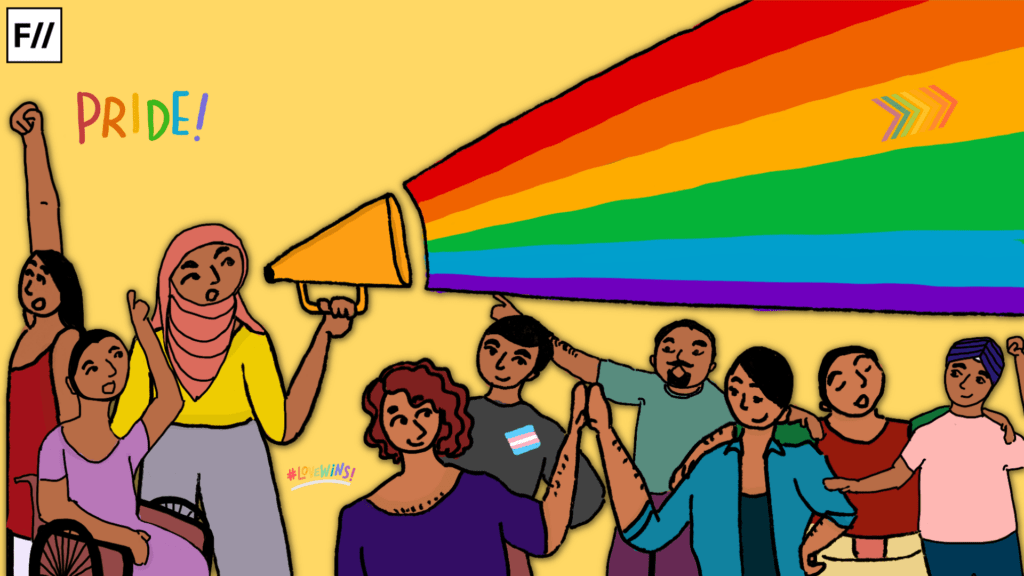
This is not to say that I myself have not liked posts that may seem to appreciate the talent of an artist on the one hand, yet refer to them in insulting ways on the other. I am not immune to being a fan of pop culture, though I attempt to be more aware of what I like and post on social media these days. This is not a big thing, yet the fact that I have incorporated this awareness into my social media presence only shows that it is possible for others too.
Perhaps one of the most pervasive, misogynistic institutions queer people tend to hype up is that of pornography. The critique of porn, offered to us by eminent radical feminists like Dworkin, provides us with a theoretical framework for a feminist analysis of the industry. The analysis yields a most elementary conclusion- an industry that thrives off of the commodification of women, that subjects them to the most subhuman treatments, must necessarily be abolished.
Unfortunately, such critique, already harshly criticised by misogynists (both open and disguised; a person I used to know once vehemently defended pornography, something that induced in me such a feeling of disgust and horror that I never reconnected with them afterwards), is more often than not ignored by gay people. Several gay men I know brush off critiques of the industry; they contend that arguments made against porn cannot possibly be extended to their own community.
Of course, this just blatantly ignores the number of drug-induced deaths sex workers in the gay pornography industry suffer, or the homophobic and misogynistic (here again, one can observe the fetishisation of patriarchal dynamics), violence such material induces in its own viewers. By warping and infecting ideas of sexual acts through the filter of misogyny, queer love has become irrevocably diseased.
How does one even begin to navigate a community whose politic directly wars with one’s own understanding and one’s own rational beliefs? As I communicate with more gay men, I find myself alternately stunned at the casual misogyny they so easily incorporate into their lives (so much for being revolutionary!) and horrified at the extent to which people would sooner demonise feminism than acknowledge criticisms of their own beliefs.
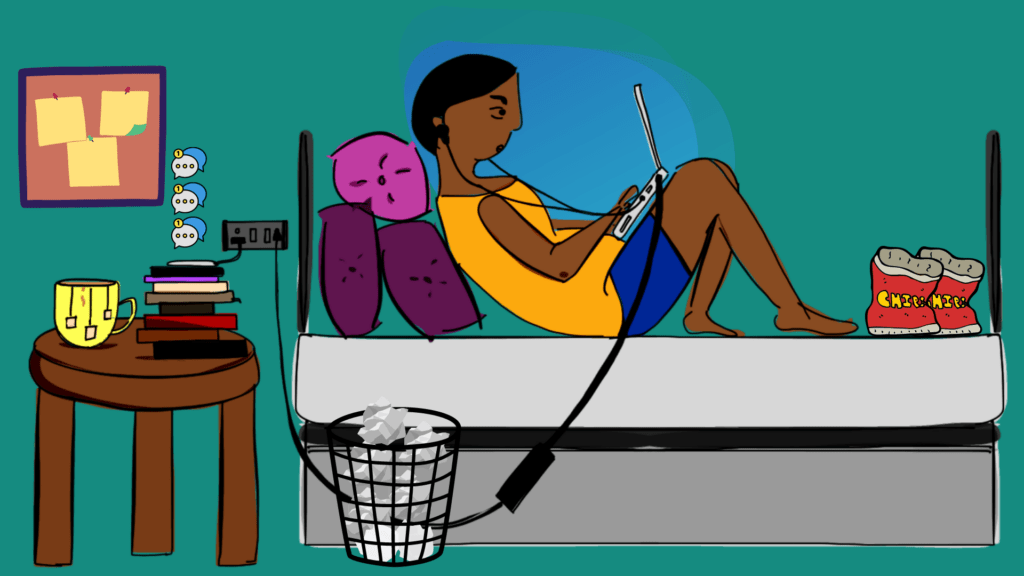
Alienating this may be, but moreover, it is an indictment of the queer movement in the country. At my own individual level, I have begun to cut cords with gay people I know over their continued consumption of porn, or over their dogged conception of community and love that invokes misogynistic violence. It isn’t much; I argue and fight and sometimes even cut contact entirely. I am not necessarily a skilled member in what I have come to acknowledge as a kind of fight in itself- to not let the movement for queer liberation leave behind its own members in its obnoxious refusal to adopt revolutionary feminist politics.
It is disheartening to engage with queer people who seem to not care about the struggle, or who refuse to budge on their own views. All I- and countless others- can do is call out what we know is wrong, and continue organising, radicalising and educating others in a newer, more refined understanding of queer movements that well and truly reconciles its differences with feminism and unites both the fight for queer freedom and the revolution to abolish male supremacy.
About the author(s)
Mayank (he/him) is an 18-year-old student hailing from Delhi. He is particularly interested in offering cultural and literary critique through the lens of feminist and queer studies. In his free time, Mayank enjoys reading theory and is known to appreciate pictures of pet cats.
